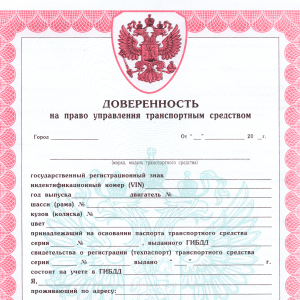- power of Attorney is a necessary written document;
- if the principal is a legal entity, then the power of attorney is necessarily assigned to print, and also signed by the head;
- at a power of attorney, the date of issue should be, otherwise this document is not valid;
- if the validity period is not specified, it is automatically equated by 1 year, the maximum period of 3 years;
- the use of abbreviations is not allowed, especially in the names of organizations, names;
- specifying passport data in a power of attorney is not necessary, but will help to avoid additional issues or distrust by third parties;
- if the principal acts an individual, then the power of attorney is subject to notarial assurance;
- for legal entities, notarization is necessary only when executing the powers of the transmission;
- legally, proxy is a one-way transaction and does not require consent with a trustee;
- power of attorney can be withdrawn at any time by the principal.

- choose a trustee;
- prepare a detailed list of powers that trusted will be able to perform on your behalf;
- contact notary with a request to issue a general power of attorney on a special form, provide him with a designed list of powers, passport data of a trusted person, additional documents on the subject of attorney (technical passport of the car, documents for property ownership, etc.);
- prepare copies of all the necessary documents in several copies, to assure them with a notary, with the aim of further providing a trustee in the right instances;
- wait for a power of attorney, carefully examine its text, check the presence of the date of issue and validity period;
- if necessary, add an item about the handover of the authority;
- sign and pass the document to a trusted face.

- paying taxes;
- reimbursement of damage to third parties;
- apply for registration of a new organization.
Registration of general power of attorney is more common compared to other types of attorney, because Often, extended powers are required for productive representation of the interests of a legal or individual.
































